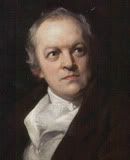Some things to think about when NPCing Hlaalu areas, as requested by arvisrend.
First of all, there are fundamental Dunmer characteristics which can be found across NPCs of all Houses and none. The strength of these traits varies, but you would expect to see some degree of the following in everyone you meet: xenophobia, religiosity, hot-headedness, and stoicism. The Hlaalu in particular may tend to downplay the first two characteristics but they’re still bubbling under the surface.
There are three broad categories of friendly Dunmer NPC in Hlaalu territory.
1. “Rural†Hlaalu. These conform most to the standard Dunmer stereotype. They don’t like outlanders and may be willing to show it. They are strictly Tribunal worshippers.
2. “City†Hlaalu. These guys are more accustomed to foreigners, and may depend on outlander trade for their livelihoods in one way or another. They are far less likely to show hostility to the player. Some may even be married to outlanders. Imperial Cult membership will still be rare and they’ll still be fairly religious, but they won’t let their religious beliefs stand in the way of business and will keep quiet about them if they think it’s expedient.
3. “Elite†Hlaalu. These are the more powerful figures in Hlaalu society. They’re far fewer in number than the other categories but they’re likely to be encountered by the player disproportionately often. They’re probably in on the “secretâ€Â, and will present themselves as citizens of the Empire first and foremost. They will appear reasonable and secular, perhaps distancing themselves from the stereotypes of Dunmer culture, and they may even be over friendly towards the player. They will on the whole be extremely intelligent and manipulative, and present a more united front than most of the other houses.
One consistent trait for the Hlaalu is their dishonesty. Never take what they say completely at face value. They won’t tell obvious lies that will get them caught out, but they will for example lie about the best route to take to the next town, or about which trader offers the best deals. The lower ranking members of this society will draw the player into their plots and intrigues against one another (in contrast to the elites). They love gossip and rumours that mix fact and fiction.
The Hlaalu also have a sharp business sense. They respond well to bribery and have an entrepreneurial spirit. They place great value on money, and on being able to trick and manipulate others. Contrast this with the Telvanni love of knowledge and independence, or the Indoril’s love of order and piety.
Some notes on Hlaalu NPCs
Moderator: Lead Developers
Both as a general remark and specifically referring to Hlaalu religiosity, I want to stress that there are many ways one can be religious, and that the clichéd zealous, intolerant evangelist* trope often used for the deeply religious doesn't really fit any Dunmer directly.
This was already touched upon in Sload's [url=http://tamriel-rebuilt.org/old_forum/viewtopic.php?t=24220]early Hlaalu document[/url].
This was already touched upon in Sload's [url=http://tamriel-rebuilt.org/old_forum/viewtopic.php?t=24220]early Hlaalu document[/url].
Hlaalu and Telvanni, being the least obviously religious, require the most thought as to how their faith manifests. (Whether it does for Telvanni is naturally a question for a different thread and time).Sload wrote:[...] These houses [that would later form Hlaalu], less committed to the theosophic & theocratic bent that the Indoril took, had vague notions of separate realms for the temple and the house, while still being devoted to the Tribunal. In their perception, the Tribunes were Nerevar's successors in matters of faith,[3] while the houses were Nerevar's successors in matters of everday life.
[...]
3 Faith in Dunmer society being extended to more existentially important roles than in our society. The Tribunal's role in defending Morrowind's borders is a natural extension of their role as leaders of the faith, as faith is the structure by which the Dunmer find their personal and national identity.

